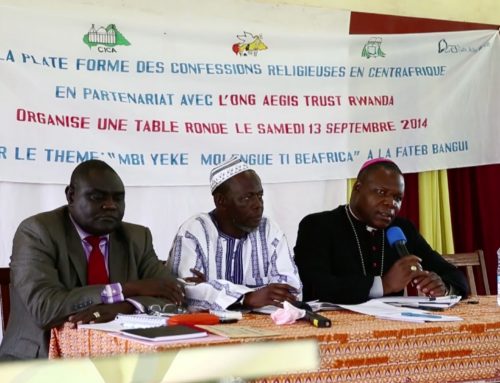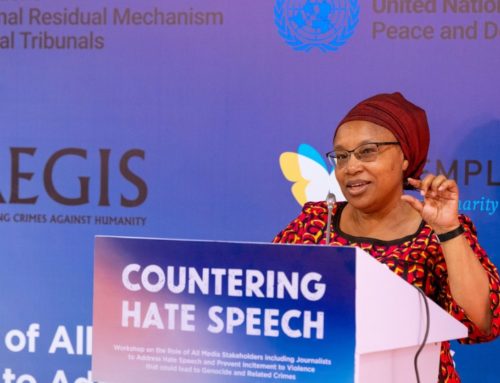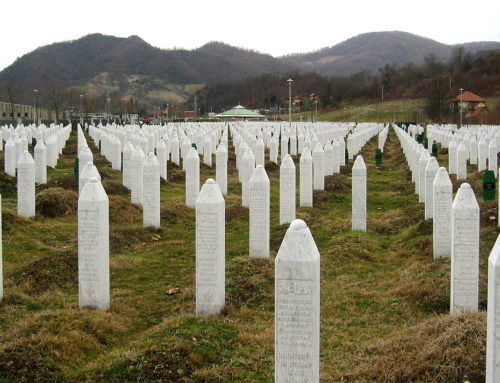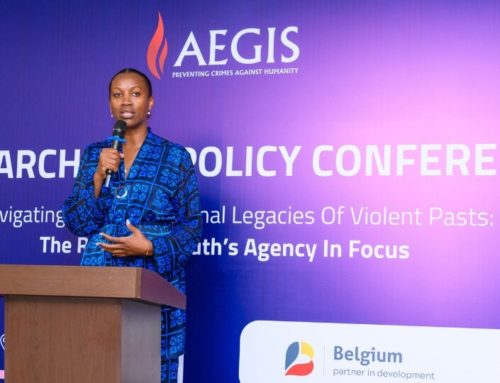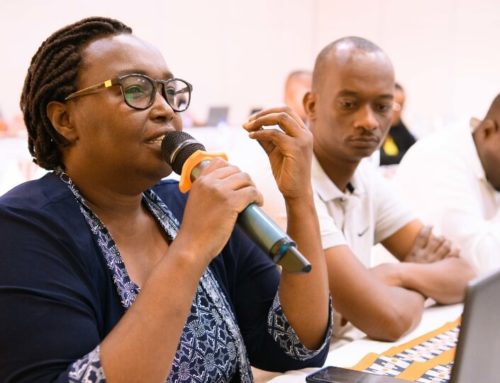Wednesday, 13 January 2010
For the first time in the history of international criminal justice, a victim takes the stand to give evidence in person. He has not been called by the Prosecution, nor by the Defence. He comes to this Court at his own request, “to tell the world” about the abuses that occurred in his territory, including abuses left out by the ICC prosecution.
He comes to the court “to ask for reparations” for the crimes committed by Lubanga´s militia group, including “killings, murders, torture and sexual slavery.” This head teacher of a school in Mahagi, in the eastern province of Ituri, represents the voices of those who seek justice for their suffering. To date, victims had participated in the proceedings through their Legal Representatives; they may now take the floor to speak for themselves through evidence in chief.
On 2 April 2009, the Representative of the Victims, Mr. Joseph Keta, submitted an application requesting the participation, in person, of three of his clients, to recount what they had suffered, as well as present their views and concerns, in particular in relation to certain events that have not thus far been covered in the Prosecution’s case. Despite objections raised by the Prosecution and the Defence teams, the Chamber ruled that the three victims were allowed to give testimony as “each had demonstrated that the evidence they seek to present affects their personal interests and it is directly related to the charges brought against the accused,” namely enlisting and conscripting children under 15 and using them actively in hostilities.
The screens in the Public Gallery announce that the trial is scheduled to start at 9.30am, but the judges have yet to enter the room. The blinds remain up and the witness box empty. All the participants in the court room kill time animatedly chatting with each other. Everyone except Mr. Keta, who sits quietly, deep in thought. His client is about to give evidence.
The teacher testifies under protective measures with his voice and image is distorted. Any questioning related to his identity will remain confidential and therefore conducted in private session. Following certain confusion at the Public Gallery due to a long silence, Mr. Keta´s voice is finally audible. “Mr. Witness, what happened during the events on 5th and 7th of February 2003?” At that time, the school the witness managed was found in the middle of the battlefield between L’Union des Patriotes Congolais (UPC), the armed group allegedly led by Mr. Thomas Lubanga and Le Front des Nationalistes et Intégrationnistes (FNI), his Lendu enemy. “The UPC chose the school as a base to fight the enemy. A lot of harm was caused,” says the witness. The school had to stop its activities as a result of the clashes, which lasted for days. “And who was responsible for those clashes?” asks Mr. Keta. “The head of the UPC,” answer the witness. “There was no doubt that Thomas Lubanga was the head of the UPC and the responsible for the clashes.”
According to the witness, a group of UPC soldiers, heavily armed, arrived at the school on the 5th of February. They were holding AK-47s and wearing military uniforms. Their ethnicity led him to think those soldiers belonged to the Lubanga´s group. “They were looking for children to be enlisted,” explains the witness. “Three
The schoolmaster received emergency first aid in a nearby medical centre and afterwards, he was transferred to Uganda for further treatment. He still endures pain. “My physical state changed as a result of the blows” says the witness. “Harm is still very much present in my mind. Speaking to you I find difficulties to concentrate. I have blank moments. These are the effects of the blows I received, and this is detrimental to me.”
The risks involved in testifying before this court don’t stop him speaking loudly about the outrages suffered by his community and himself. He took the stand to achieve restorative justice: “I came to be able to speak about the situation of Mahagi which was forgotten by the investigations of the ICC,” says the witness. “In this territory happened a lot of abuses; there were cases of killings, murder, and sexual slavery. The list is so long. The charges which are put are insignificant when you consider what we experienced. I want to take this opportunity to tell the world what happened and ask for reparations.”
The International Criminal Court has the power to order a convicted person to pay reparations to the victims or their beneficiaries. Reparations may take the form of restitution, indemnification or rehabilitation, and take place after the person prosecuted has been declared guilty of the alleged facts. The Court also has the option of granting individual or collective reparation, concerning a whole group of victims, or a community, or both.
Following Mr. Keta´s examination it is the turn of the Prosecution, who seeks to clarify certain aspects of the witness´s testimony and will stress the fact of the individual responsibility of the accused, Thomas Lubanga. The Defence team, for its part, wants to explore the authenticity of the medical records that the witness had presented to the court, his functions as schoolmaster during that period, as well as other details on the staff organization, financial structure and descriptions of the building itself. That is information that might lead to the identification of the protected witness and therefore has to be redacted and examined in private session. Just few questions put by the Defence were conducted on Wednesday in open session.
In the course of this week, two more participating victims will tell their personal histories before this Court. They are two former child soldiers who will give evidence on their recruitment and the use that was made of them in hostilities in a region which has not been addressed thus far by the Prosecution.


